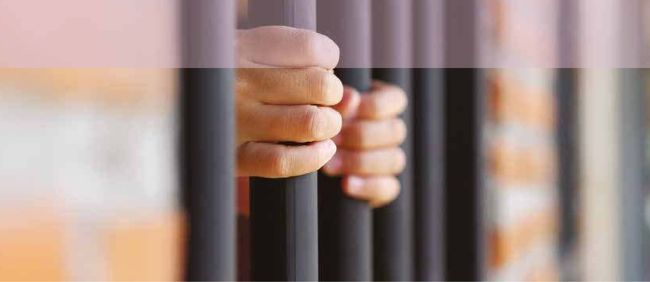The Very Rev Dr Andrew McLellan considers the messages drawn from the Bible’s retelling of Peter’s times in prison.
ST Peter was never in Barlinnie.

Photo: iStock
Had there been a Chief Inspector of Prisons for Judea in the first century he (no HMCIP for Scotland has been a woman – unlike England and Wales) would have been horrified by the conditions in which Peter was imprisoned and the treatment he received.
The second prison escape story in the Book of Acts is at ch 12 vv. 3-10. King Herod seized Peter and “handed him over to four squads of soldiers to guard him”. That night Peter, “bound with two chains, was sleeping between two soldiers, while guards in front of the door were keeping watch”. Conditions in Scotland’s prisons are far from perfect, but they are less brutal than Peter discovered.
The Bible, however, is not interested in the soldiers and the chains from the point of view of human rights.
The tightness of the security is there in the Bible to emphasise how miraculous was the escape. The story is a story about the power of God. As in the Acts story we looked at last month (5: 17-29) we will gain most from the story if we can get beyond the question “what really happened?”
This is not a story about angels and chains falling off. It is a story about the unlimited power of God which can be contained by no earthly doors. Herod had seized and imprisoned Peter not for any crime, but because he thought that his previous cruelty to the church had turned out well for him.
“After he saw that it pleased the Jews, he proceeded to arrest Peter also”. Every tyrant uses imprisonment as a political tool: sadly, that is what makes Amnesty International’s work so important.
The General Assembly has heard regularly in recent times the name of Asia Bibi. She is a Christian who was convicted under Pakistan’s infamous Blasphemy Laws in 2010 after being accused of insulting the Prophet Muhammad during an argument with Muslim women.
She has always denied the charge.
She was the first woman to be sentenced to death for blasphemy in Pakistan.
She has leave to appeal but no court has yet heard her appeal, so she has now spent five years in solitary confinement.
Asia Bibi is the mother of five children. Maybe in prison she receives an occasional visitor; and maybe the story of Peter’s imprisonment is read to her; maybe she hears Acts 12 v 5 “While Peter was kept in prison, the church prayed fervently to God for him”; and maybe she wonders if the church in Scotland is praying fervently for her.
While we may not understand the details of Peter’s escape, Acts tells the story in a way that would leave its original readers in no doubt: this is a story about God.
The appearance of an angel, the mention of the Passover, the prayers of the people – for any first century Christian this is a story about the power of God.
The story begins with the power of Herod and ends with his grim death; it begins with the capture of Peter and ends with his release.
No doubt the church included in its fervent prayers “Your will be done on earth as it is in heaven”: and later in the chapter, after Peter’s release, we read “The word of God continued to advance”.
The Very Rev Dr Andrew McLellan served as HM Chief Inspector of Prisons from 2002 until 2009.